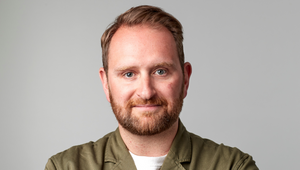
Leaders and Brands Need to Be More Founder

It’s a core truth that leadership modes change over time, sometimes as a reaction to the context at hand (hello COVID), and perpetually as a result of evolving business models. Today, that’s more true than ever as the businesses of creativity in particular blend and bend to embrace new models, new technologies, and a new generation of creators and business-makers.
Big Business v Entrepreneurship
Historically, there’s been a dissonance between big business and entrepreneurship, and expectations of the leadership required for say a matrixed global organisation or large corporation versus a founder-led scale-up.
But, today, there’s a radical reframing, if not reckoning, of what great leadership looks like in the corporate world, regardless of the scale or ownership model of the business in question. Leadership modes are not determined by size, but of desired impact.
Every leader, whether in big business or blossoming start up, can and should be more founder. What does this mean? It means, leaders must innovate, invent, and create to approach every single day as a new opportunity to lead with their own head, heart, and soul in everything they do. For when we lead as if it’s our business, our team, we’re ‘in it’ in a different way. We’re making decisions with our whole selves.
Forces Driving Change
So, why be more founder today? There are two connected forces that are driving this change.
Firstly, in an increasingly automated, AI driven, and often fake world, authenticity is an increasingly powerful differentiator for businesses, brands and leaders, not just in terms of their what via the products and services they deliver; but also in their how, or the way in which they work, communicate and run their businesses.
Secondarily, though authenticity is a highly used term in the world of leadership, branding and creativity, the pivotality of it, and need for it, is newly and deeply reinforced by the increasingly sceptical audiences that businesses, brands and leaders need to engage. This scepticism is best exemplified by gen Z. Difficult to reach through traditional media, businesses and brands have been attempting to engage gen Z through social channels and earned media. What these businesses and brands are learning is that gen Z respond positively to authenticity and become powerful advocates when they share their approval online. As advocacy becomes one of the most important levers for impact, it’s crucial to orient the total business approach to earning this. Gen Z will rebuke anything that smells like a quick sell and chastise leaders and brands that try to fake it.
Authenticity as The Pre-requisite
Authenticity is no longer a ‘marketing’ term, it’s a pervasive pre-requisite for effective leadership. What does authenticity mean in a leadership context? It’s about embracing all of the facets of one’s own human experience, beliefs, behaviours and attitudes, and channelling that into the businesses that we lead. This means that it’s not enough to be business-savvy and financially invested. We have to be emotionally invested as well. It’s about being able to engage directly with employees, partners, customers or consumers in a way that engenders trust and generates positive engagement and advocacy when faced with an increasingly sceptical audience. Why? Because when we’re truly in it with them and proving that through everything we do, we’re solving something together and being of service to them and to us. Being authentic to self creates better business as it comes from not just a financial need, but a more holistic human need. In a world of potential dehumanisation, this is a real differentiator
Founders do this instinctively. For example, Brian Chesky speaks directly to staff and customers via Airbnb’s newsroom to share good, bad and sad news. The six months he spent in 2023 staying in Airbnb properties, and his admission that 10% of his stays were truly disappointing, re-focused Airbnb on customer experience. His actions say he's really ‘in it’.
Be More Founder
But be more founder is not about actually being a founder. It’s about leadership behaviours that are like a founder’s no matter the circumstances. It’s about demonstrating that we’re deeply, emotionally invested in this business, its reputation, and the people this business serves. It’s about personal humanity and beliefs delivered with authenticity, earning advocacy, the most powerful business growth driver in the world.
Gen Z are an important audience for The Walt Disney Company. Bob Iger is not the founder of The Walt Disney Company, but he is undeniably invested in Disney. His authenticity – for example, when he talks openly about their mistakes and issues of morality – has earned him the respect of audiences that have not been advocates in the past.
Even founders who polarise public opinion are undeniably authentic, however distasteful we may find their authentic selves.
BE MORE FOUNDER is about adopting the attitudes and behaviours that evidence a leader’s authenticity to an increasingly sceptical group of employees, partners, customers and consumers who can smell anything fake a mile off. Be more founder has the power to build a business that’s both true to self and powerful to those who share those values. At its core, it’s a partnership (even community) model, rather than a top-down hierarchical model, which recognises that when we’re all in it together, we all win.
Co-authored by Gary Stolkin, CEO and founder, The Talent Business & Suzanne Powers, non-exec chair, The Talent Business / founder and CEO, PowersCreativity.












